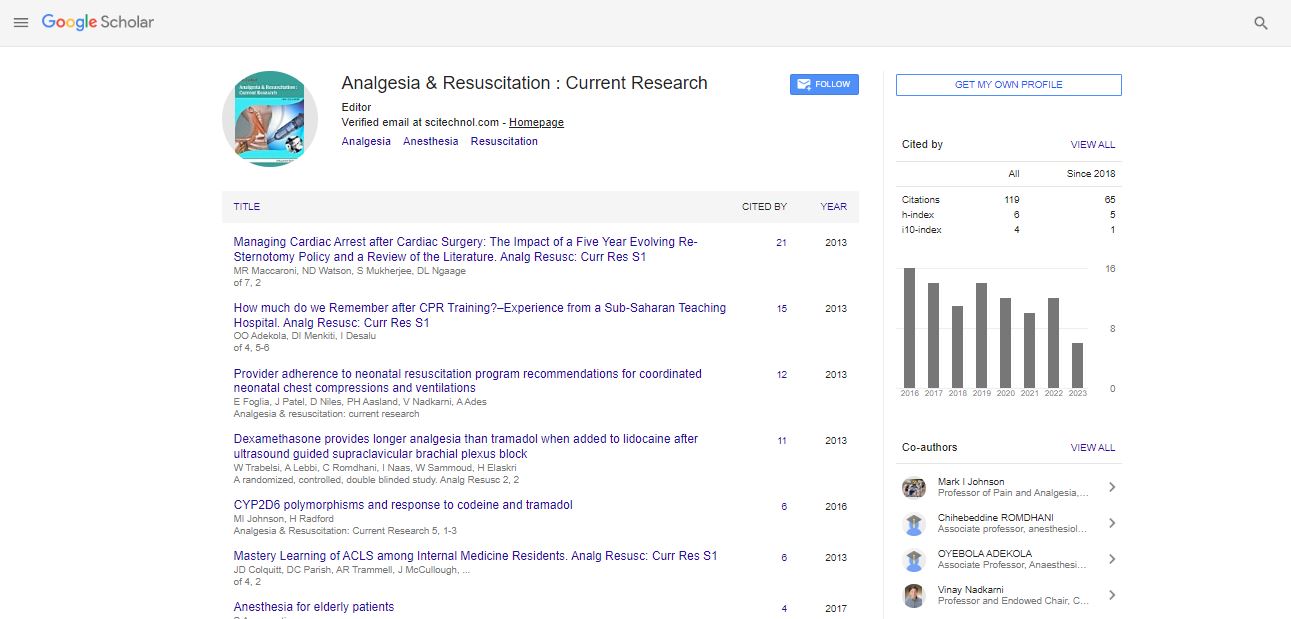Research Article, Analg Resusc Curr Res Vol: 3 Issue: 2
Neuromuscular Blocking Agents and Therapeutic Hypothermia Post Cardiac Arrest in the Intensive Care Unit: Knowledge to Practice
| Glen Gardner1 and Sandra MacDonald2* | |
| 1RougeValleyHealthSystemHospital, Toronto, Canada | |
| 2School of Nursing, Memorial University of Newfoundland, Canada | |
| Corresponding author : Sandra MacDonald School of Nursing, Memorial University of Newfoundland, Canada Tel: ++358 403552906 E-mail: smacdon@mun.ca |
|
| Received: December 28, 2013 Accepted: March 05, 2014 Published: March 25, 2014 | |
| Citation: Gardner G, MacDonald S (2014) Neuromuscular Blocking Agents and Therapeutic Hypothermia Post Cardiac Arrest in the Intensive Care Unit: Knowledge to Practice. Analg Resusc: Curr Res 3:2. doi:10.4172/2324-903X.1000116 |
Abstract
Neuromuscular Blocking Agents and Therapeutic Hypothermia Post Cardiac Arrest in the Intensive Care Unit: Knowledge to Practice
Therapeutic hypothermia is an effective in-hospital treatment modality post ventricular fibrillation cardiac arrest, but there is a need for advanced nursing knowledge and skills to implement the treatment safely. This paper discusses one specially designed education module that was developed and implemented at the Rouge Valley Health System Hospital in Ontario, to address this need. The Knowledge-To-Action framework was used to guide the development of the module. Twelve critical care registered nurses participated in the module and findings from the project showed that the teaching learning approach of a self-paced learning package, lectures, discussions, and return demonstrations had a positive impact on nurses’ knowledge and confidence in caring for these patients. Busy ICU nurses need flexibility in the delivery of education in the clinical setting, and this project showed that a flexible approach can help to prepare nurses to care for patients receiving therapeutic hypothermia.
 Spanish
Spanish  Chinese
Chinese  Russian
Russian  German
German  French
French  Japanese
Japanese  Portuguese
Portuguese  Hindi
Hindi 
